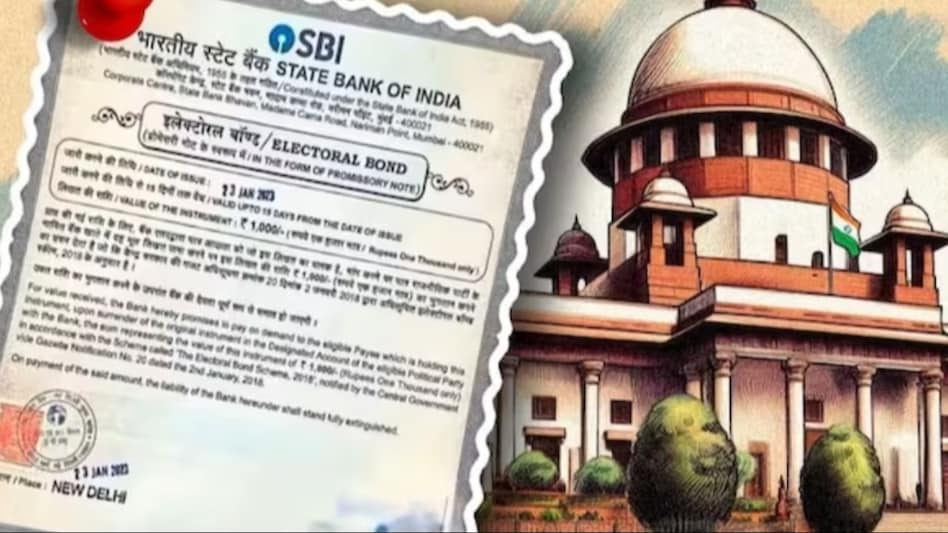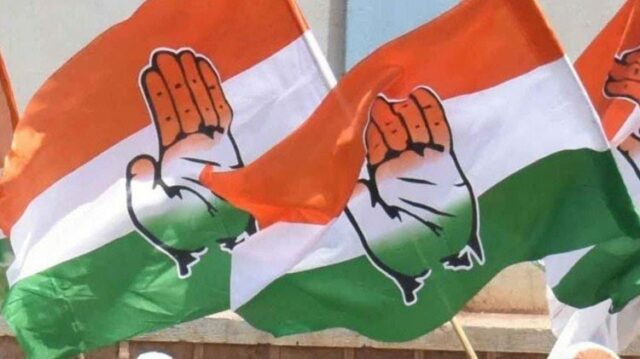“Electoral bond scheme unconstitutional…”: Supreme Court cancels the scheme

The Supreme Court on Thursday gave its verdict on the petitions challenging the validity of the Electoral Bonds scheme. The Supreme Court has canceled the electoral bond scheme. The Supreme Court declaring the Electoral Bond Scheme unconstitutional in the election year is a big blow to the Central Government. The court said, “Violation of the right to information for the purpose of curbing black money is not justified. The electoral bond scheme is a violation of the right to information and freedom of expression. Not disclosing information about funding by political parties is contrary to the objective. .” A five-judge Constitution bench headed by Chief Justice DY Chandrachud had reserved its verdict in the case on November 2 last year.
SBI instructed to share electoral bond data by March 6


The court has ordered to stop electoral bonds immediately. The Supreme Court issued instructions saying, “State Bank of India (SBI) should give all the details of the contributions made so far through electoral bonds to the Election Commission by 06 March.” The court also directed the Election Commission to share the information on its website by March 13.
Unanimous decision
While delivering the verdict, CJI DY Chandrachud said, “We have reached a unanimous decision. My decision has been supported by Justice Gavai, Justice Pardiwala and Justice Manoj Mishra. There are two opinions in it, one is my own and the other is that of Justice Sanjeev Khanna.” “… Both reach the same conclusion, although there are slight differences in the reasoning.”
Curbing black money is not the basis of electoral bonds
Delivering the judgement, the CJI said, “There are other means than electoral bonds to curb black money. We are of the opinion that the test is not satisfied by the least restrictive means. To achieve that objective other than electoral bonds are There are also means. Contributions through electronic transfer and other means of electoral trust are other restrictive means. Thus curbing black money is not the basis for electoral bonds. It is not appropriate to violate the Right to Information for the purpose of curbing black money. “The Constitution cannot turn a blind eye to this matter, merely on the ground that it may be misused.”
While giving the verdict CJI said…
- The fundamental right to privacy includes a citizen’s right to political privacy and political affiliation.
- Information about a citizen’s political affiliation can allow a citizen to be stalked or trolled.
- It can be used to disenfranchise voters through voter surveillance.
- History shows that political affiliation can be assessed by ideological inclination etc.
-Financial contributions to political parties are usually made in return for or in exchange for support for the party. - So far the law allows this by corporations and individuals.
- When the law permits political contributions showing political support, the Constitution has a duty to protect them.
- There are some contributions from non-major parties and it is usually to show support.
The petitions raise the following issues
A- Is the amendment a violation of the Right to Information under Article 19(1)(a)?
B- Does unlimited corporate funding violate the principles of free and fair elections?
On issue 1, the courts have recognized that citizens have the right to hold the government accountable. The important aspect of the expansion of the Right to Information is that it is not limited to matters of state only, but also includes information essential for participatory democracy. Political parties are relevant units in the electoral process. Information about funding of political parties is necessary for electoral elections.
Who raised questions on the electoral bond scheme?
The Constitution bench also included Justice Sanjeev Khanna, Justice BR Gavai, Justice JB Pardiwala and Justice Manoj Mishra. The bench had on October 31 last year started hearing four petitions, including those filed by Congress leader Jaya Thakur, Marxist Communist Party and NGO Association for Democratic Reforms (ADR).





